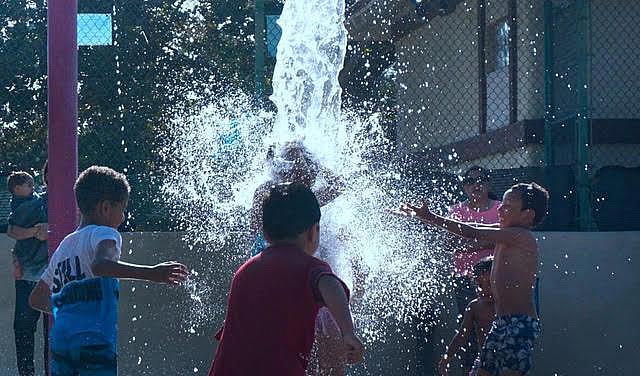Is California failing to adequately screen kids for developmental problems?

Gina Warren sees the cycle repeat. The young children she works with don’t get screened for developmental issues. By the time they get to school, they are labeled “bad” or “disruptive.” Before long, those labels translate into suspensions, detentions and dropping out. Del Paso Heights, the low-income Sacramento neighborhood where she works, has a 30 percent high school drop out rate, she says.
“They act out because they don’t know any way to articulate their pain,” says Warren, a clinical pharmacist who grew up in the neighborhood and returned two years ago to found the Neighborhood Wellness Foundation.
In addition to undiagnosed developmental issues, she says, many of the children she serves are burdened with intense, multi-generational trauma. But too often, Warren says, teachers and pediatricians don’t have the time or resources to screen for these underlying problems.
“Providers and teachers are just overwhelmed,” she says. “They can’t get it all. They have to triage.”
For my 2017 California Data fellowship project, I’m writing a series of stories about why so many young children in the state are not being screened for developmental issues, despite clear guidelines that they should be. I will also be looking at disparities in access to supportive services for those who are identified as needing help, and local and statewide efforts to improve the numbers.
“The systems to identify and support these kids are broken,” says Moira Kenney, executive director of the First 5 Association of California. “No one is paying for it and no one is identifying those kids. We’re doing really badly.”
Recent survey data shows that only one in five California children under 5 receive developmental screenings in 2016, despite the fact that such screenings have been federally mandated since 2010. California trails behind most other states, ranking in the bottom 10. I’ll be digging into this data, as well as other state datasets related to screenings and services.
The issue is of enough concern that the state Department of Developmental Services and Public Health have begun prioritizing it, establishing a taskforce last year and releasing a report about the problem earlier this summer.
“We know from early brain development that kids who don’t get the proper stimulation in the first few years of life may be forever behind in the acquisition of core skills we need to succeed in life,” says Dr. Ed Schor, senior vice president of the Lucile Packard Foundation for Children’s Health.
Pediatricians and teachers may be able to pick up the most severe developmental issues, but without appropriate screening, they often miss mild to moderate issues that could be significantly improved with early intervention, he says.
The statewide data also masks disparities among regions, socioeconomic and ethnic groups. Part of my efforts will involve getting more granular data from the state and other sources in order to better drill down on these disparities.
Some of the most notable disparities are those that impact children with parents who are new immigrants, and who often don’t have the language skills to understand what their children are (or are not) learning, much less to effectively navigate complex systems.
“If you’re a Hmong family who doesn’t speak English, you don’t know your kid isn’t reading,” says Richard Dana, executive director of the Mutual Assistance Network in Del Paso Heights. “Every study shows that if you’re not reading by third grade, it’s too late.”
(Photo: Frederic J. Brown/AFP/Getty Images)

